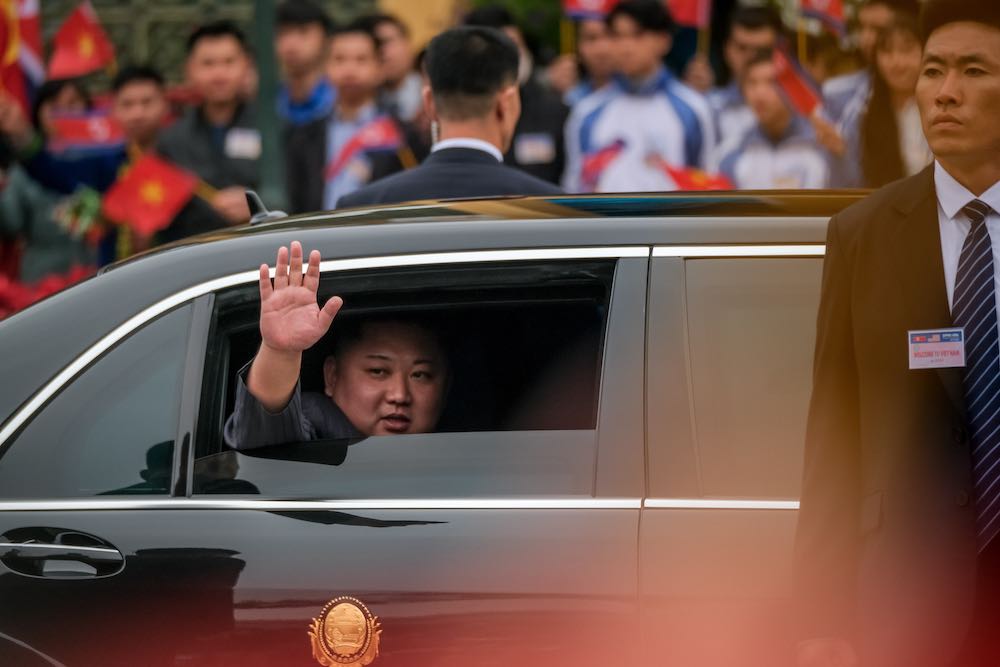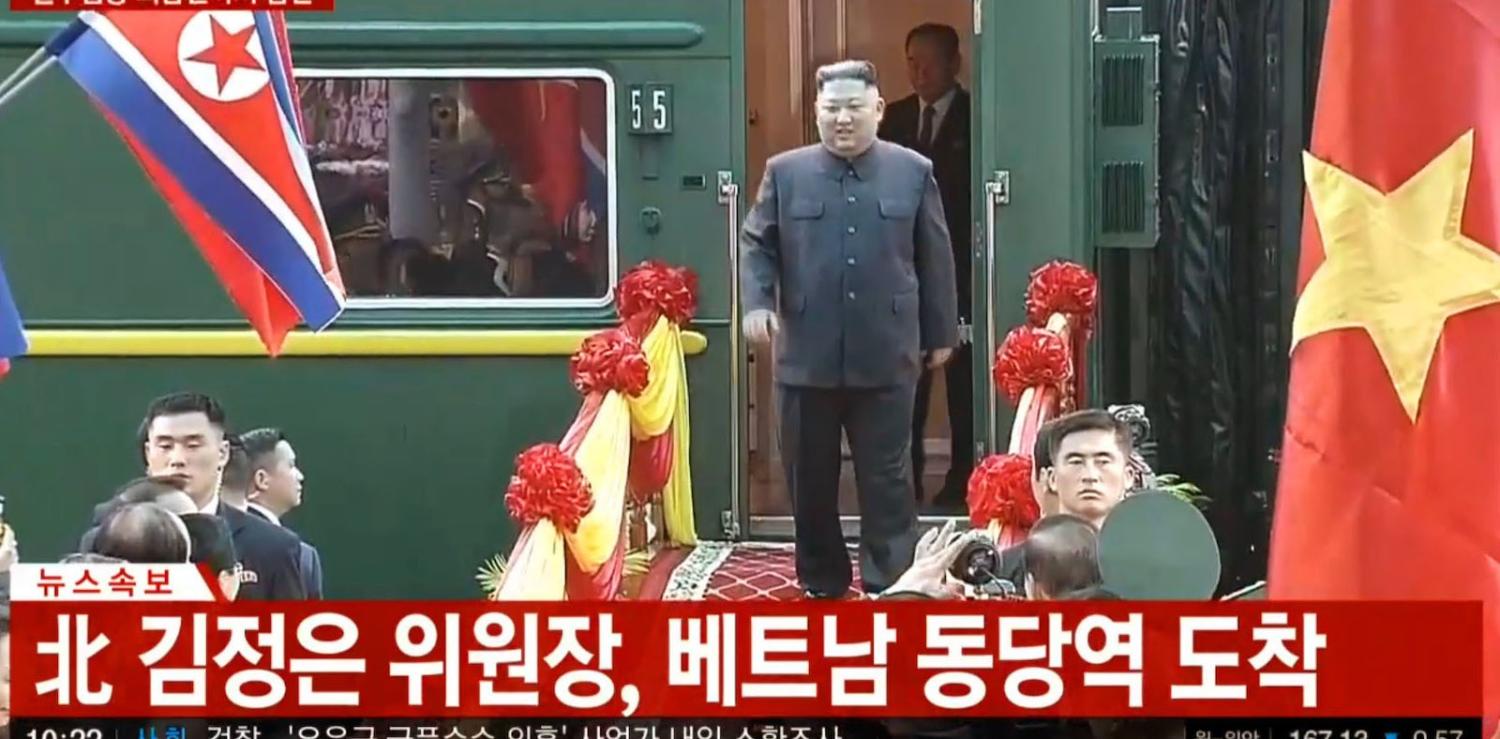US President Donald Trump and North Korean leader Kim Jong-un are set to begin two days of talks in Hanoi, Vietnam, in what will be their second meeting within eight months. While it might not draw as much attention as the earlier landmark event in Singapore, the Hanoi summit is expected to produce more concrete results instead of just good pictures and Twitter news.
The summit will take place over two days, allowing both leaders to develop their relationship with one another while buying more time for their aides to negotiate in detail. As Trump vowed to “continue our historic push for peace on the Korean Peninsula”, the focus of this talk is to convince North Korea to take concrete measures towards denuclearisation, while providing some sort of concessions, such as lifting some global sanctions, paving the way for Pyongyang to resume foreign trade.
The location offers something for both sides of the summit. Few countries can claim to have a good relationship with both North Korea and the United States as can Vietnam.

Hanoi has long considered Pyongyang a close friend, it supported the country during the Vietnam War and its founding father Kim Il-sung paid a visit twice. Despite recent stumbles because of Kim Jong-nam’s murder in Malaysia two years ago, in which a Vietnamese woman is involved, North Korea remains one of their only five communist comrades.
The summit will take place over two days, allowing both leaders to develop their relationship with one another while buying more time for their aides to negotiate in detail.
On the other hand, the United States has grown to be one of Hanoi’s most important partners – economically and politically – in the past two decades, particularly while China becomes increasingly aggressive in its hegemonic ambitions in Asia. To say the least, Vietnam is an optimal destination of a truly neutral peacemaker.
Second, in a point made by former US State Department official Mintaro Oba, “Vietnam is logistically convenient, diplomatically viable, and symbolically significant.” It is a manageable distance to Pyongyang, meaning Kim could travel by train via China. That makes security for him less troublesome than would have been if the summit was organised further afield. The Vietnamese authorities have declared that 100% of the police force in Hanoi – which is approximately 20,000 – and an additional elite force of 1,000 personnel from the central government will be responsible for guaranteeing the security of the event.
Third, no matter how much we expect from the Hanoi Summit, it is very unlikely that a real breakthrough, such as North Korea’s commitment to dismantle their nuclear arsenal irreversibly, will occur in Hanoi. Denuclearisation will not happen overnight. This leads to a significant question: what Vietnam can offer to that process?
The answer is a lot.
Thirty years ago, Vietnam was in the same situation as North Korea now, even worse. As the result of its invasion of Cambodia to bring down the murderous Khmer Rouge regime, Hanoi was blockaded from China, European countries, the United States, and its fellow Southeast Asian nations. The economy was close to collapse, while its main supporter Soviet Union was also in big trouble.
Vietnamese leaders responded by implementing the Doi Moi (Reform) policy in 1986, embracing a market-oriented economy while maintaining a one-party regime. The rest is history: a war-devastated country transformed into one of the world’s fastest-growing economies in three decades. As North Korea seeks to open up its highly centralised economy, it should have a close look at Vietnam’s success.
Recent actions from North Korea shows a willingness to learn, too. Back in 2012, a North Korean delegation visited the Thai Binh province to examine its rural development, and then last year, North Korean Foreign Minister Ri Yong Ho reportedly visited Hanoi to study Vietnam's reforms. It is also reported that Kim Jong-un will likely visit Samsung’s factory in Vietnam, which produces half of Samsung’s smartphones and accounts for 25% of Vietnam’s exports, and then Hai Phong, where the manufacturing facilities of Vietnam’s biggest private company, Vingroup, is located.
Economic ties are much more efficient in solving conflicts than sanctions. After the normalisation of Vietnam-US relations, the two countries have engaged deeply in a wide range of activities. The US has moved from an enemy to become Vietnam’s biggest export market and has become a strategic partner in regional security matters. The rosy relationship between the two unlikely friends will perhaps be something Kim Jong-un will examine carefully.
A more prosperous North Korea will be the best-case scenario for the peace process in the Korean Peninsula. And as a rule of thumb, it is always much harder to negotiate with someone who has nothing to lose.
Vietnam also stands to benefit from the summit. For the past 10 years, the country has tried to elevate its role in international affairs by organising international meetings such as Asia Pacific Economic Cooperation meeting in 2008 (in Hanoi) and in 2017 (in Danang), the high-powered World Economic Forum in 2018, and frequent ASEAN summits. Hanoi wants to increase its status in the international community, improving its strategic partnerships with the United States, and “fraternal” relationship with North Korea, while making it easier for it to call for the attention in heated issues like the territorial disputes over the South China Sea.
The heavy media coverage of the event will also help Vietnam tell its own success story without paying for expensive advertisement campaigns. It is really a time for Vietnam to be known as a vibrant economy and a young, modern society, rather than as shorthand for a bloody war that ended nearly a half-century ago.

